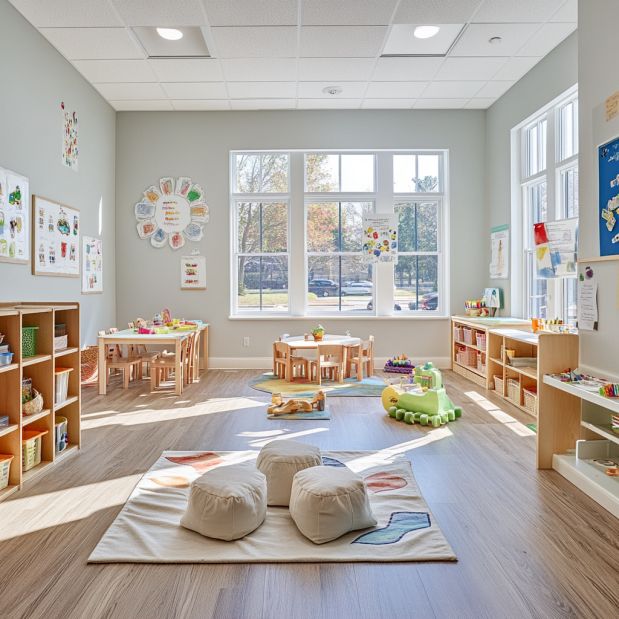The early childhood education (ECE) sector is a vibrant and essential field, constantly seeking passionate individuals to shape the minds of the youngest learners. Whether you’re a fresh graduate brimming with theoretical knowledge and enthusiasm or a seasoned educator with years of practical wisdom, the ECE landscape offers a wide array of job opportunities tailored to different levels of experience and career aspirations. Understanding where you fit and how to leverage your unique strengths is key to a successful job search early childhood jobs.
Opportunities for New Graduates
New graduates bring a fresh perspective, up-to-date theoretical knowledge, and an eagerness to apply their learning in a practical setting. While direct teaching roles might seem daunting initially, several pathways are ideal for those just starting out.
- Assistant Educator/Teacher Aide Roles: These positions are an excellent stepping stone. They allow graduates to observe experienced teachers, understand daily centre operations, and gain hands-on experience in a supportive environment. It’s a chance to consolidate theoretical knowledge with practical application.
- Relief Teaching: Working as a relief teacher offers incredible flexibility and exposure to various ECE philosophies, age groups, and centre cultures. This can be invaluable for new graduates to explore different settings before committing to a permanent role, building a diverse skill set and a professional network.
- Entry-Level Qualified Teacher Positions: Many centres actively seek newly qualified teachers, valuing their recent training and enthusiasm. These roles often come with mentorship programmes and professional development opportunities designed to support graduates in their first permanent teaching roles.
Tips for New Graduates:
- Highlight your latest knowledge: Emphasize your understanding of current ECE curricula, pedagogical approaches, and child development theories.
- Showcase your passion: Centres look for genuine enthusiasm and a commitment to children’s well-being and learning.
- Embrace professional development: Be open to continuous learning and demonstrate a willingness to grow.
- Network: Connect with fellow students, lecturers, and professionals during placements or industry events.
Opportunities for Experienced Educators
Experienced educators are invaluable assets to any early childhood centre. Their years of practical experience, deep understanding of child behaviour, proven classroom management skills, and ability to mentor others make them highly sought after for leadership and specialized roles.
- Head Teacher/Team Leader: These roles leverage an experienced educator’s leadership skills. They involve guiding a team of teachers, overseeing curriculum implementation for a specific age group, and ensuring the smooth running of a classroom or learning space.
- Centre Manager/Director: For those with extensive experience and a strong understanding of ECE operations, managing an entire centre is a natural progression. This involves strategic planning, staff management, financial oversight, regulatory compliance, and fostering strong community relationships.
- Curriculum/Pedagogical Leader: Some larger ECE organizations employ experienced educators in roles focused on developing and implementing educational programmes across multiple centres, ensuring consistent quality and innovative practices.
- Mentor/Coach: Experienced teachers can also take on formal or informal mentoring roles, guiding new graduates and less experienced staff, sharing their wisdom, and contributing to the professional growth of the team.
- Specialist Roles: Opportunities may arise for specialists in areas like special education needs (SENCO), cultural responsiveness, or specific pedagogical approaches (e.g., Montessori, Reggio Emilia).
Tips for Experienced Educators:
- Showcase leadership and mentoring abilities: Highlight instances where you’ve guided or supported colleagues.
- Demonstrate adaptability: While experience is key, show you are open to new ideas and evolving ECE practices.
- Quantify your impact: Provide examples of how your work has positively influenced children’s learning outcomes or centre operations.
- Consider further qualifications: Advanced diplomas or leadership courses can enhance your profile for senior roles.
A Collaborative Environment: Learning from Each Other
The beauty of the ECE sector lies in the synergy between new graduates and experienced educators. New graduates bring fresh research and innovative ideas, while experienced professionals offer invaluable practical insights, resilience, and a deep understanding of the nuances of working with young children and their families. Centres that foster a collaborative environment where both groups can learn from and support each other thrive, ultimately providing the best outcomes for children.
Whether you’re just starting your journey or looking to take the next step, the early childhood sector offers a fulfilling career path with continuous opportunities for growth and impact. By understanding your strengths and targeting appropriate roles, you can find your ideal place in this vital field.

